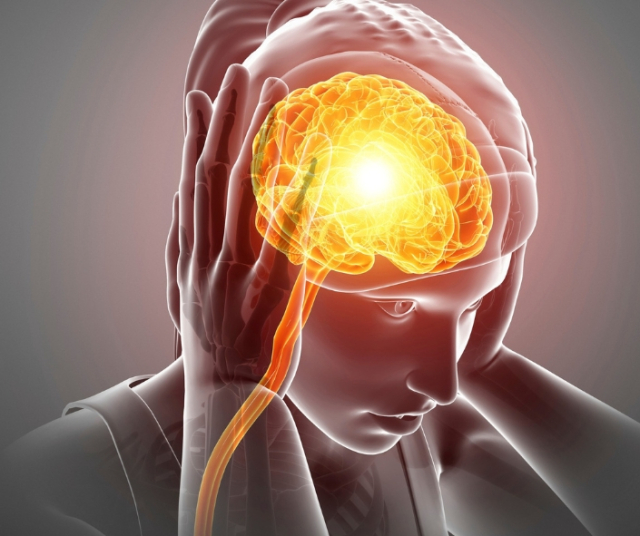Migraines are severe, debilitating headaches that affect millions of people around the world. Migraine sufferers experience symptoms such as throbbing pain, sensitivity to light and sound, nausea, and in some cases, vomiting. Although there are medications available to treat migraines, many people look for natural alternatives and home remedies to relieve these painful episodes.
Trigger Identification:
Identifying triggers, also known as "triggers", is a fundamental step in the management and relief of migraines. These triggers are specific factors that can trigger or aggravate migraine episodes in susceptible people. Each individual may have unique triggers, and accurately identifying these elements can make all the difference in preventing future painful episodes.
To carry out this identification process, it is recommended to keep a detailed migraine diary that records daily habits, eating patterns, hours of sleep, and stress levels. These records provide a comprehensive view of the factors that could contribute to the onset of migraines. By analyzing this data, it is possible to detect recurring patterns and determine possible connections between certain triggers and migraine episodes.
Common triggers can include a variety of things, such as certain foods or food ingredients, hormonal changes related to the menstrual cycle, environmental factors such as exposure to bright lights or loud noises, as well as emotional or physical stress. Identifying these specific triggers not only helps prevent migraines, but also provides a solid foundation for developing personalized management and treatment strategies.
Stress Management:
Stress is one of the main triggers of migraines. Practicing stress management techniques, such as meditation, deep breathing, and yoga, can help reduce the frequency of episodes. These practices promote relaxation and decrease muscle tension, which can relieve headaches.
Adequate Hydration:
Maintaining adequate hydration emerges as an essential component in the management and relief of migraines. Dehydration, or not enough fluid in the body, has been identified as a possible trigger for migraine episodes in some people. Therefore, adopting healthy hydration habits can significantly contribute to the prevention and reduction of the frequency of these debilitating ailments.
To ensure adequate hydration, it is recommended to drink enough water throughout the day. Avoiding excess caffeine and alcohol, substances that can have dehydrating effects, is crucial. Caffeine, in particular, can create imbalances in fluid levels, which could trigger or aggravate migraine episodes in some sensitive people.
Opting for water, herbal teas, or caffeine-free sports drinks are healthy options to maintain proper water balance. Additionally, incorporating foods with high water content, such as fruits and vegetables, into your daily diet can also contribute to overall hydration of the body.
It is essential to pay special attention to hydration during periods of increased physical activity, exposure to heat, or consumption of salty foods, as these factors can increase the need for fluids. A useful visual indicator of adequate hydration is the color of your urine: if it is clear or pale yellow, you are likely well hydrated.
Rest and Sleep Routine:
Maintaining a regular sleep schedule and getting the right amount of rest is essential to preventing migraines. Insufficient or irregular sleep can trigger migraine episodes. Establishing a consistent sleep routine and creating a conducive sleep environment can make a difference in the frequency and intensity of migraines.
Healthy nutrition:
Diet plays a crucial role in preventing migraines. Avoid trigger foods such as chocolate, cheese, sausages and products with monosodium glutamate. Opt for a diet rich in fruits, vegetables, whole grains and lean proteins. Maintain a regular meal schedule and avoid skipping meals to keep blood sugar levels stable.
Hot or Cold Compresses:
Hot or cold compresses can be effective in relieving the headache associated with migraines. Apply a cold compress to your forehead for 15 minutes and then rest for another 15 minutes. This can help reduce inflammation and relieve pressure. Some people prefer warm compresses, so experiment to see which is most effective for you.
Massages and Stretches:
Massage can be an effective tool for relieving muscle tension that contributes to migraines. Gently massage your neck, shoulders and scalp to release built-up tension. Additionally, practice gentle stretching to improve flexibility and reduce muscle stiffness.
Aromatherapy:
Some people find relief through aromatherapy. Essential oils such as lavender, peppermint, and chamomile may have relaxing properties. Apply these oils to your temples, the back of your neck, or use a diffuser to enjoy their benefits. However, use caution if you are sensitive to strong odors.
Biofeedback Techniques:
Biofeedback is a technique that teaches people to monitor body functions such as heart rate and muscle tension. Learning to recognize and control these functions can help prevent migraines. You can look into biofeedback devices or work with a health professional to learn these techniques.
Natural Supplements:
Some people find relief with natural supplements. Coenzyme Q10, riboflavin (vitamin B2) and magnesium are supplements that have shown some effectiveness in preventing migraines. Before starting any supplement, it is important to consult with a healthcare professional to determine the proper dosage and ensure there are no interactions with other medications.
It's important to remember that what works for one person may not be effective for another, so it's essential to experiment with different approaches and find the combination that best suits your needs. If migraines persist or worsen, it is crucial to seek the guidance of a healthcare professional to receive an accurate diagnosis and appropriate treatment plan.
